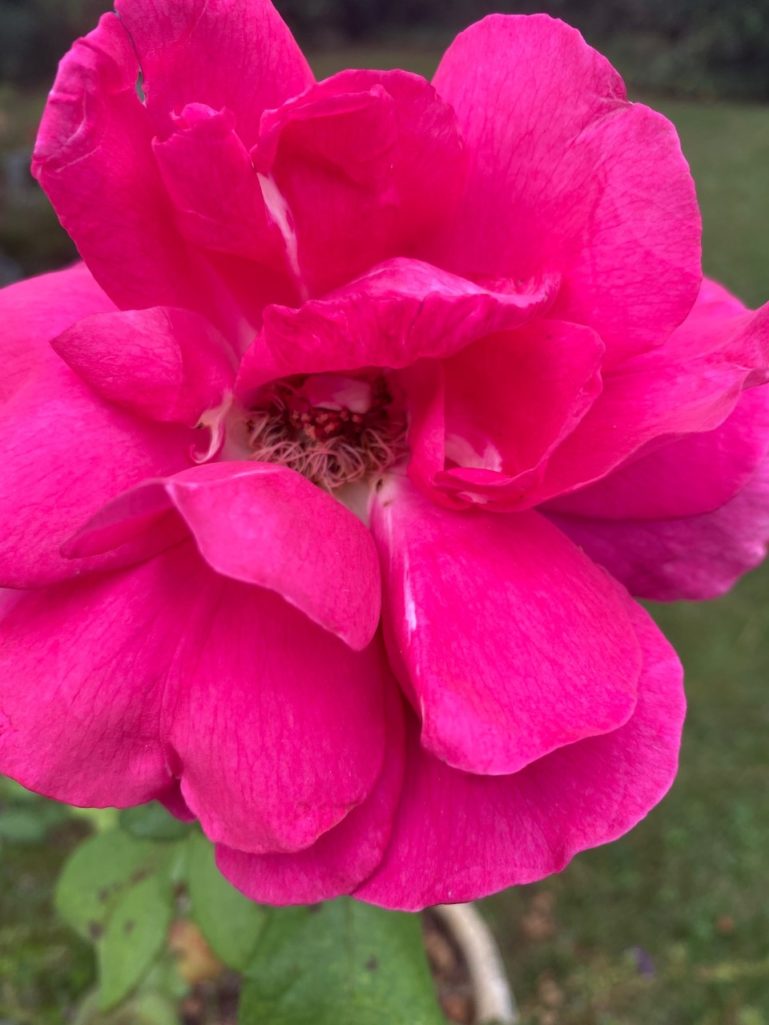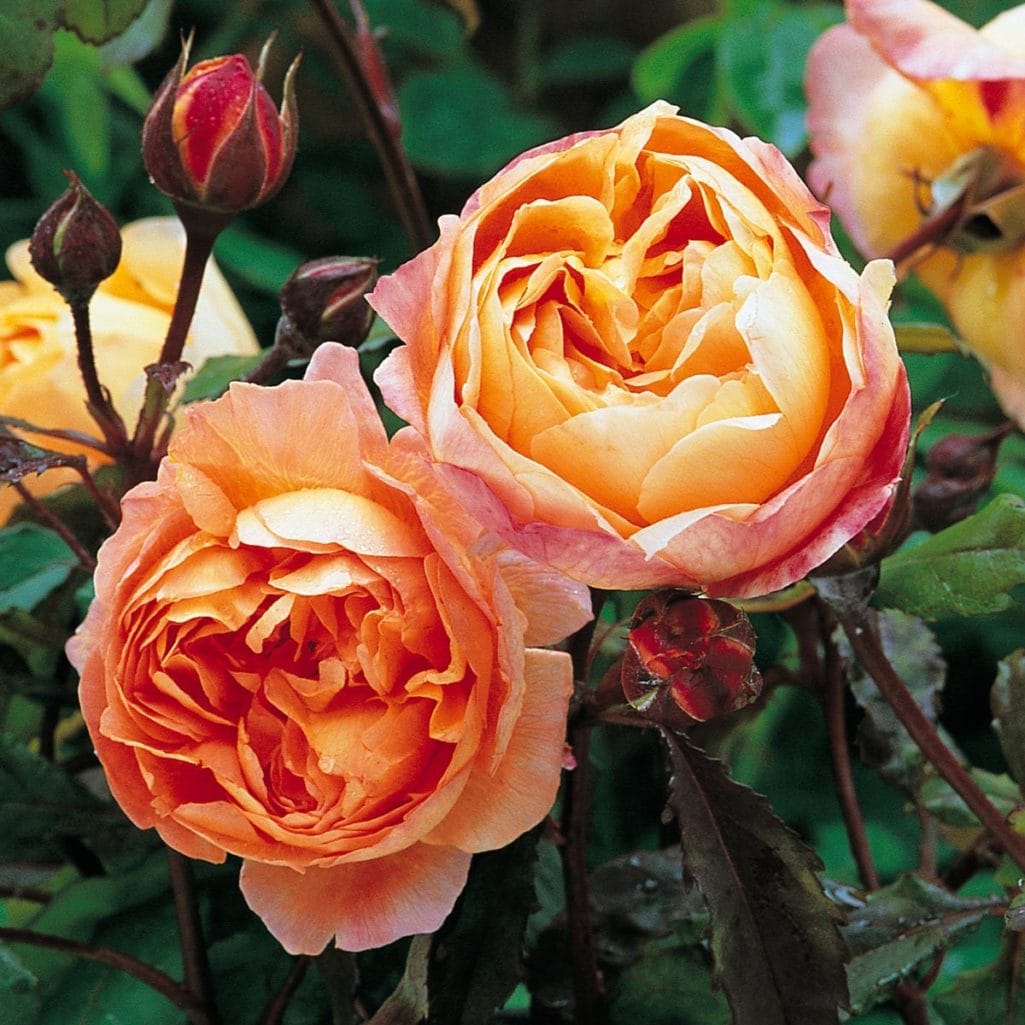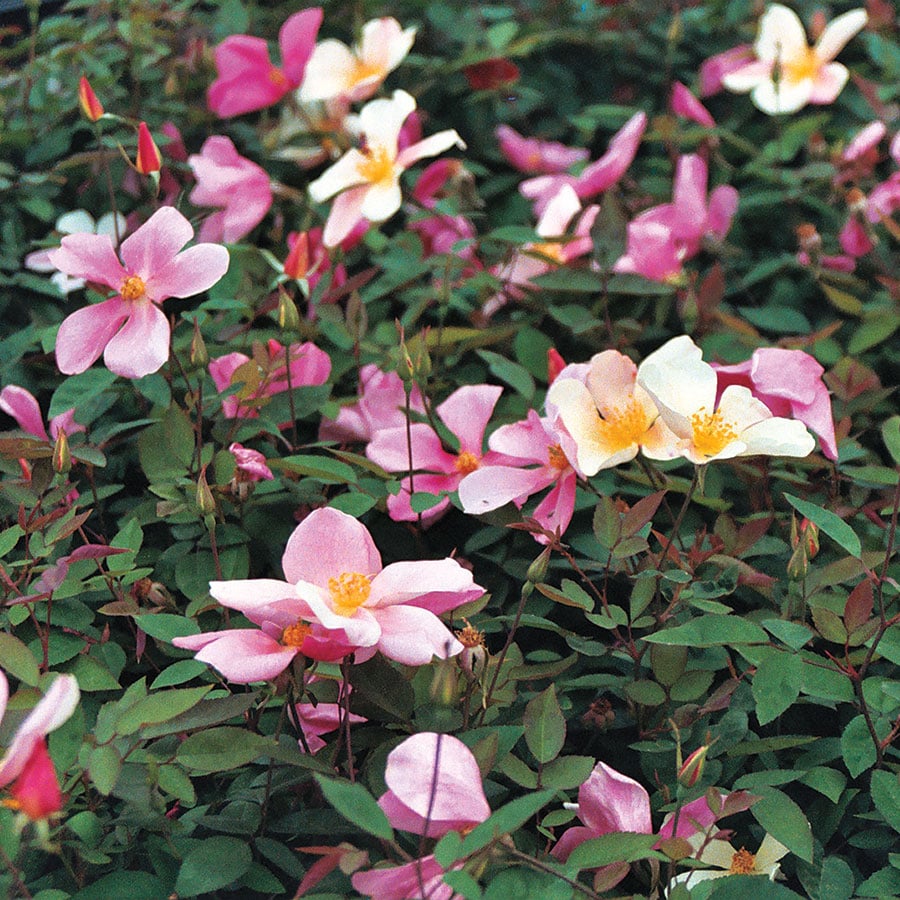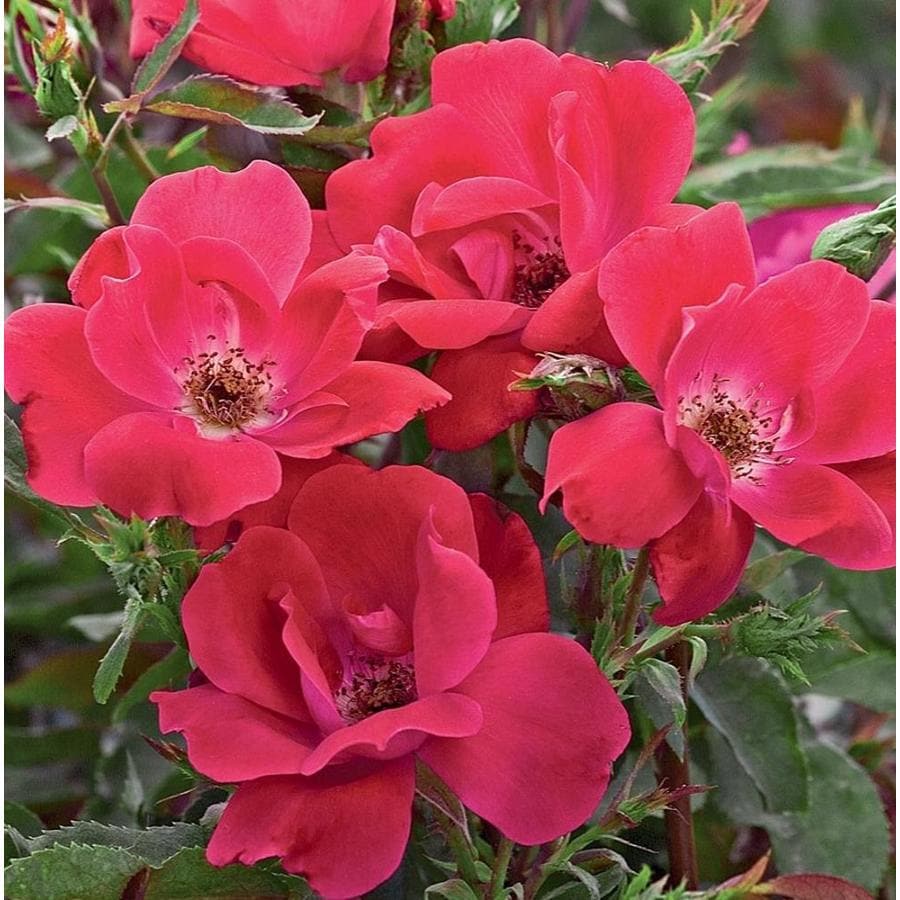
We are coming up on a BIG weekend. The first Saturday in May. April showers are bringing May flowers and annual flowers and perennials will really start to take off this month.
So will a field of thoroughbreds in Louisville for the 147th running of the Kentucky Derby. It’s called the Run for the Roses. On the track and in our gardens, roses are taking center stage.
So grab a hat (they are a huge part of the Derby scene) and run or walk to plant, nurture, or admire America’s National flower, the rose.
A rose by any other name…

Grandifloras, Polyanthas, Floribundas, and ramblers, tea roses, drift roses, shrub roses, climbers, and miniatures. The list of rose varieties sounds endless and a tad bit overwhelming, huh? If you love roses the great thing about it is you can find one that’s just for you, that fits into your space, that can be high maintenance or low maintenance, and tough as nails.
Speaking of nails, I have two drift roses that I love BUT I discovered this thorny fact a few years ago as I was pruning them. The stickers on these babies are like hypodermic needles. Ouch!
I have grown about every variety of rose in existence over the years but by far my most favorite is a David Austin. They are a little challenging to find at most garden centers and expensive to order directly from the company even though their US distribution center is in Texas. To me, the cupped shape of their roses and their unforgettable fragrance is unlike anything else. I also love the fact that each featured rose in their Literary Collection is named after an English poet, a family member who has contributed to the David Austin legacy, or someone who has impacted English history. A trip to the David Austin rose gardens in England is definitely on my bucket list.

Whether it’s a David Austin or any other type of rose, perhaps no other flower has reached its level of world stardom. In fact, we’ve been growing roses for thousands of years. They’ve been used as medicine, perfume, currency, artistic muse, and of course, as symbols of a lover’s undying affection. I’m sold. How about you?
Caring for roses
Location, location, location. Just like selecting real estate, location will play a huge role in the bloom factor of your rose so start them off right by making sure you grow them in a good spot. Roses do best in full sun (at least 6 hours of direct sun a day) and well-drained soil that’s rich in organic matter. If your soil has lots of sand or clay, it’s helpful to add organic matter, such as compost, before planting them.

There are no roses that do well in full shade, but some varieties tolerate partial shade better than others. If you grow your roses in too much shade, they won’t flower as much and they’ll be more likely to suffer from pest and disease problems. I grew a Mutabilis tree rose many years that bloomed prolifically in part sun. As a bonus, it featured a mixture of pastel shades.
Other than making sure you have the right roses in the right spots, mulching is the best thing you can do to ensure healthy roses.
Water when thirsty. Most roses do best if they get about an inch of water each week during the growing season. Gardeners with sandy soil often find their roses need a little more water than those gardeners who deal with clay soil.
Sprinklers can be problematic because they send water into the air. Wet rose foliage, especially in the evening or nighttime hours, can encourage fungal diseases. It can also be wasteful to water with sprinklers. On hot, sunny days, some of the water will evaporate before it reaches the ground.
A fungus among us. Roses are commonly attacked by a number of fungal diseases, including black spot, powdery mildew, rust, and the bane of my rose’s existence, thrips.
The best way to help your roses fight disease is to keep them strong. Make sure they have good growing conditions and ample moisture and nutrients. Remove dead foliage from your roses, too—it can spread disease.
I’m convinced not all roses are created equal, some are much more high maintenance than others but all of them, in spite of their sharp thorns, are a sight to behold.

Coming up next, one of the latest most popular varieties of roses, the Knockout! Check in to our Now Habersham Facebook page on Friday for your chance to win!

